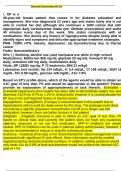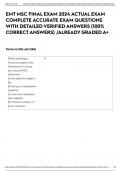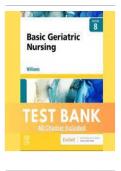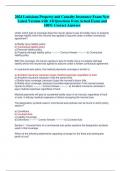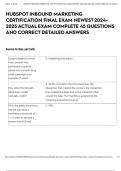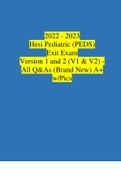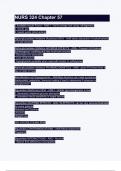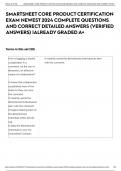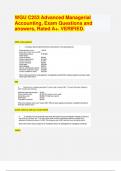Exam (elaborations)
NSG533 / NSG 533 Exam 1 (Latest 2024 / 2025): Advanced Pharmacology | Complete Guide with Questions and Verified Answers | 100% Correct - Wilkes
- Course
- NSG 533
- Institution
- Wilkes University
NSG533 / NSG 533 Exam 1 (Latest 2024 / 2025): Advanced Pharmacology | Complete Guide with Questions and Verified Answers | 100% Correct - Wilkes
[Show more]
